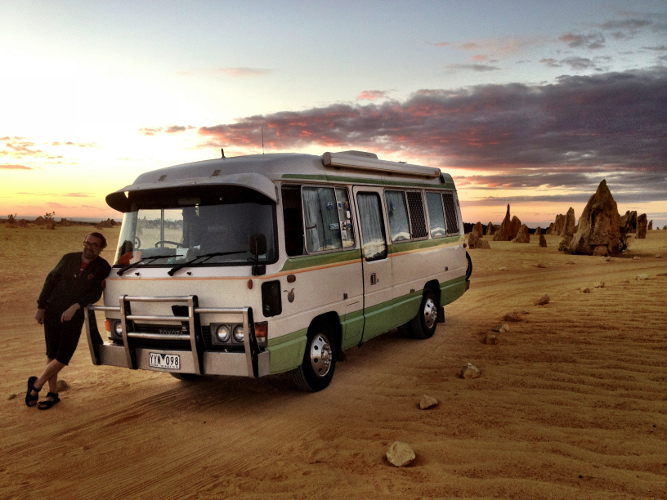
Start your research early by trawling through sites like Caravan Camping Sales , Trading Post , CarPoint , Gumtree , eBay , Travellers Autobarn , and Travel Wheels . These will give you a good idea on what is out there. The more you know, the better decisions you will make. The Caravan and Motorhome Club of Australia (CMCA; cmca.net.au) is the organisation for everything motorhomes. Though they may be aiming at the Grey Nomads market (thousands of retired Australians doing ‘the lap’ of Australia), their information and access to services are invaluable.
You need to budget for the following, as well as the cost of your van: vehicle registration (in Australia this is called ‘rego’); insurance; getting a roadworthy certificate (RWC) for your rego transfer; and any mechanical checks you want to do before buying. Australian states have differing regulations, but in Victoria (down in the south) an overseas traveller can use the hotel or hostel they’re staying at for registration purposes.
Our 1987 Toyota Coaster cost around $500 per year to comprehensively insure through the CMCA. You may decide to go for something cheaper, covering only damage to other’s vehicles not your own (third party insurance).
A current RWC is mandatory for transferring ownership. Unless you’re a mechanic, don’t buy a vehicle that doesn’t already have one. Ironically, the RWC only proves the vehicle’s safety features are in good condition, not the actual engine!
You only need a car licence if your vehicle weighs under 4.5 tonnes fully loaded; so you should be fine unless you're buying a large motorhome. It’s advised you get an international driving permit before you arrive in Australia.
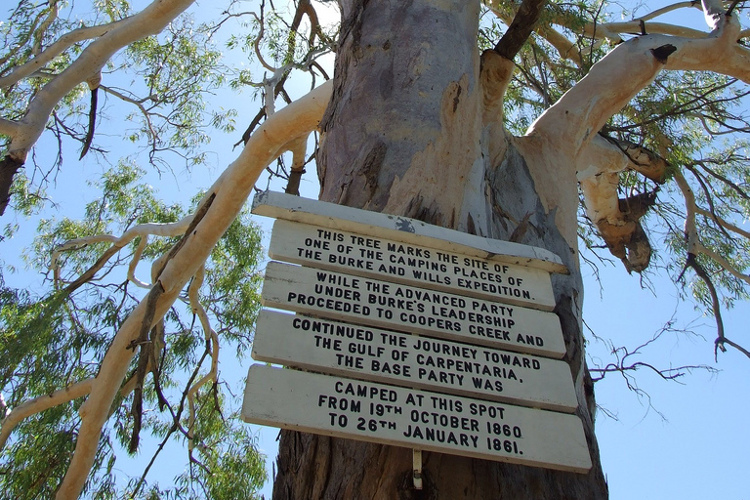
Renting a campervan for a few days or a week before you invest in one can give you a feel for your requirements – do you really need an inside shower and toilet? There’s no substitute for match-practice to sort out priorities. We used a spade and dug a deep hole for toilet time. Consider the vehicle’s history and kilometres; fuel type and consumption; 2WD or 4WD; battery set up and power; water tanks; storage; and comfort. We cooked outside on a stove whenever possible, but if you plan to do your cooking inside, the vehicle's ventilation is something to consider too.
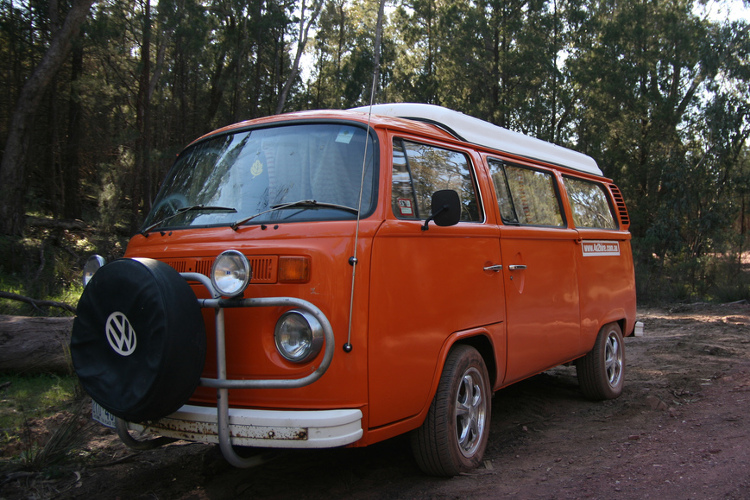
Of course a secondhand campervan – and one that has done some kilometres already – will have some character (read: wear and tear). You will need to work out what repairs will cost you and what is a real issue that you won't be able to fix. As well as the vehicle's service history, it's best to check the following:
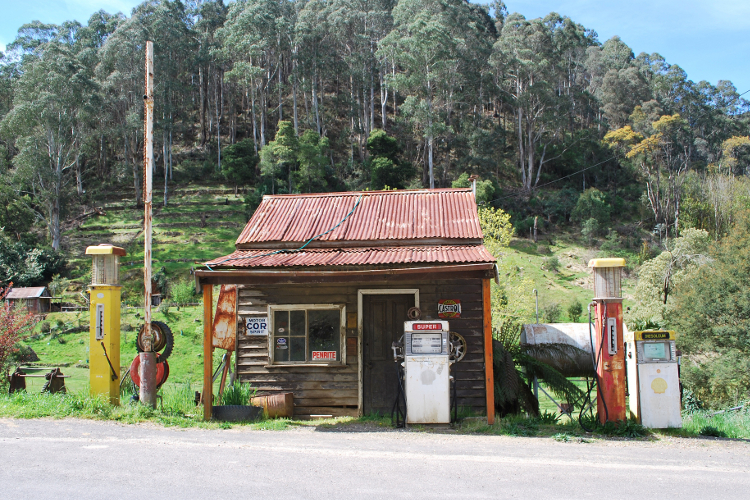
Whatever type of fuel, if you go fast, it’s gone fast. Your vehicle’s carting around the extra weight of a home (you know how snails go slow?). The size of your tanks, fuel type and average consumption determine how far you can drive between fill ups. All stations offer petrol; almost all, diesel; and most LPG – but not all. Calculate your fuel requirements and if you need a jerry can. The life of a well-maintained diesel engine is twice the kilometres of other engines.
We drove a 2WD so we stuck to mostly-sealed roads and, weather permitting, some good dirt ones – not off-road. You can see plenty of Australia without getting a 4WD, but a whole lot more if you’re experienced in off-road driving.
It’s best to have separate batteries for engine and campervan power – we bought a solar panel and could go off-grid for four days powering the lights and fridge. Freezers eat power.
Make sure the windows have fly screens, that your campervan has an awning, and that the bed is big enough. Tall people take note!
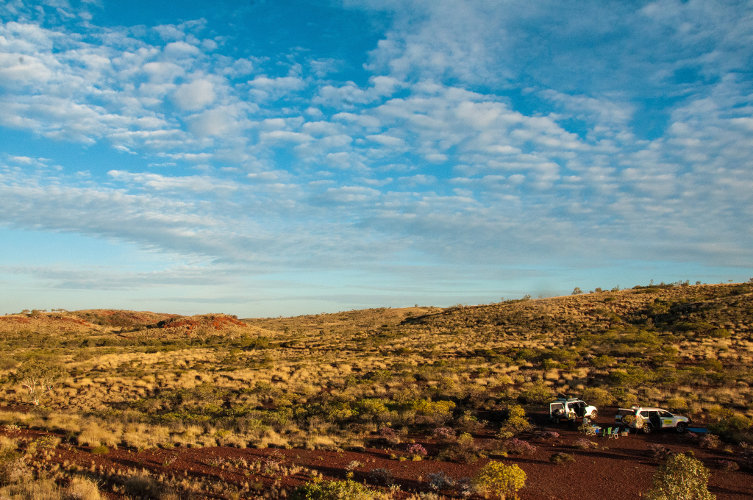
Most sellers will pass on the accessories (and knowledge) they’ve acquired along the way. If you don’t have a shower, a $20 solar shower bag is worth the investment. We also bought a pop-up ‘privacy en-suite’ shower stall. However, ours had no pop-down instructions (the ever-handy YouTube how-to video attracted the comment ‘you saved our marriage’). At the end of a long drive we enjoyed, not the cheapest or most compact, but most comfortable folding chairs. Other things that are a must-have:
A GPS is a great, but old-fashioned maps and guidebooks are more fun – and often more reliable.
Before you’ve finished your trip, start advertising – campervans can take months to sell. It’s best to finish in a main city with a good turnover of campervans. Keep all receipts, and download and print off the sale documentation.
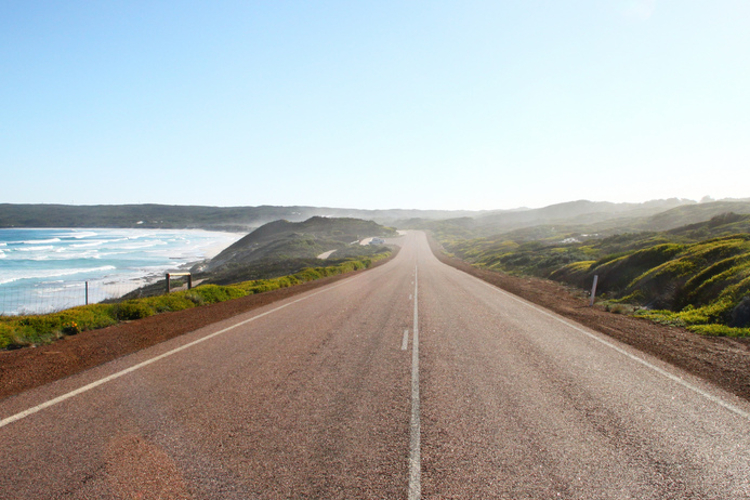
Now to enjoy the trip of a lifetime. Drive on!